 W
WAfrican Genesis: A Personal Investigation into the Animal Origins and Nature of Man, usually referred to as African Genesis, is a 1961 nonfiction work by Robert Ardrey. It posited the hypothesis that man evolved on the African continent from carnivorous, predatory ancestors who distinguished themselves from apes by the use of weapons. The work bears on questions of human origins, human nature, and human uniqueness. It has been widely read and continues to inspire significant controversy.
 W
WAsylums: Essays on the Condition of the Social Situation of Mental Patients and Other Inmates is a 1961 collection of four essays by the sociologist Erving Goffman.
 W
WBetween Past and Future is a book written by the German-born Jewish American political theorist, Hannah Arendt, and first published in 1961, dealing with eight topics in political thinking.
 W
WThe Big Love, is a non-fiction scandalous biographical account of an alleged love affair between actor Errol Flynn and then fifteen-year-old actress Beverly Aadland, as told by her mother, Florence Aadland.
 W
WBlack Like Me, first published in 1961, is a nonfiction book by white journalist John Howard Griffin recounting his journey in the Deep South of the United States, at a time when African-Americans lived under racial segregation. Griffin was a native of Mansfield, Texas, who had his skin temporarily darkened to pass as a black man. He traveled for six weeks throughout the racially segregated states of Louisiana, Mississippi, Alabama, Arkansas, and Georgia to explore life from the other side of the color line. Sepia Magazine financed the project in exchange for the right to print the account first as a series of articles.
 W
WThe Children of Sanchez is a 1961 book by American anthropologist Oscar Lewis about a Mexican family living in the Mexico City slum of Tepito, which he studied as part of his program to develop his concept of culture of poverty. Due to criticisms expressed by members of the family regarding the Partido Revolucionario Institucional (PRI) government and Mexican presidents such as Adolfo Ruiz Cortines and Adolfo López Mateos, and its being written by a foreigner, the book was banned in Mexico for a few years before pressure from literary figures resulted in its publication.
 W
WThe City in History: Its Origins, Its Transformations, and Its Prospects is a 1961 National Book Award winner by American historian Lewis Mumford.
 W
WThe Concept of Law is a 1961 book by the legal philosopher HLA Hart and his most famous work.The Concept of Law presents Hart's theory of legal positivism—the view that laws are rules made by humans and that there is no inherent or necessary connection between law and morality—within the framework of analytic philosophy. Hart sought to provide a theory of descriptive sociology and analytical jurisprudence. The book addresses a number of traditional jurisprudential topics such as the nature of law, whether laws are rules, and the relation between law and morality. Hart answers these by placing law into a social context while at the same time leaving the capability for rigorous analysis of legal terms, which in effect "awakened English jurisprudence from its comfortable slumbers".
 W
WThe Death and Life of Great American Cities is a 1961 book by writer and activist Jane Jacobs. The book is a critique of 1950s urban planning policy, which it holds responsible for the decline of many city neighborhoods in the United States. The book is Jacobs' best-known and most influential work.
 W
WThe Death of God is a 1961 book by Gabriel Vahanian, a part of the discussion of death of God theology during the period.
 W
WThe Democratic Intellect: Scotland and her Universities in the Nineteenth Century is a 1961 book by philosopher George Elder Davie.
 W
WThe Destruction of Lord Raglan: A tragedy of the Crimean War, 1854–55 is a non-fiction historical work by Christopher Hibbert, originally published by Longman in 1961. The work is a portrait of Lord Raglan, commander-in-chief of British forces during the Crimean War. Drawing on contemporary letters, papers, and diaries Hibbert, re-assesses both Raglan and the war, suggesting that the chaos of the conflict was the tragic result, not of one man's neglect, but of the whole nation's folly.
 W
WThe Destruction of the European Jews is a 1961 book by historian Raul Hilberg. Hilberg revised his work in 1985, and it appeared in a new three-volume edition. It is largely held to be the first comprehensive historical study of the Holocaust. According to Holocaust historian, Michael R. Marrus, until the book appeared, little information about the genocide of the Jews by Nazi Germany had "reached the wider public" in both the West and the East, and even in pertinent scholarly studies it was "scarcely mentioned or only mentioned in passing as one more atrocity in a particularly cruel war".
 W
WThe Dictionary of Modern Written Arabic is an Arabic-English dictionary compiled by Hans Wehr and edited by J Milton Cowan.
 W
WThe Emergence of Modern Turkey is a 1961 book written by historian Bernard Lewis, an expert in the history of Middle East and Islam.
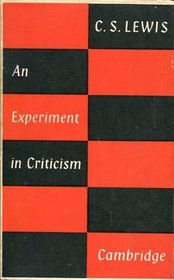 W
WAn Experiment in Criticism is a 1961 book by C. S. Lewis in which he proposes that the quality of books should be measured not by how they are written, but by how they are read. To do this, the author describes two kinds of readers. One is what he calls the "unliterary", and the other the "literary". He proceeds to outline some of the differences between these two types of readers. For example, one characterization of a unliterary reader is that the argument "I've read it before" is a conclusive reason not to read a book. In contrast, literary readers reread books many times, savouring certain passages, and attempting to glean more from subsequent readings.
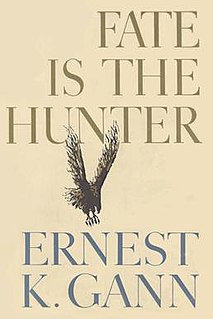 W
WFate Is the Hunter is a 1961 memoir by aviation writer Ernest K. Gann. It describes his years working as a pilot from the 1930s to 1950s, starting at American Airlines in Douglas DC-2s and DC-3s when civilian air transport was in its infancy, moving onto wartime flying in C-54s, C-87s, and Lockheed Lodestars, and finally at Matson Navigation's short-lived upstart airline and various post-World War II "nonscheduled" airlines in Douglas DC-4s.
 W
WFor the New Intellectual: The Philosophy of Ayn Rand is a 1961 work by the philosopher Ayn Rand. It is her first long non-fiction book. Much of the material consists of excerpts from Rand's novels, supplemented by a long title essay that focuses on the history of philosophy.
 W
WForces and Fields :The concept of Action at a Distance in the history of physics (1961) is a book by Mary B. Hesse, published by Philosophical library.
 W
WThe Forest People (1961) is Colin Turnbull's ethnographic study of the Mbuti pygmies of the then-Belgian Congo.
 W
WGermany's Aims in the First World War is a book by German Historian Fritz Fischer. It is one of the leading contributions to historical analysis of the causes of World War I, and along with this work War of Illusions (Krieg der Illusionen) gave rise to the "Fischer Thesis" on the causes of the war. The title translates as "Grab for World Power". or "Bid for World Power". Essentially Fischer attempts to link together a continuum of German belligerence in their "grab for power" weaving it all together into a cohesive theme of German Weltpolitik.
 W
WA Girl and Five Brave Horses is a memoir by Sonora Webster Carver published in 1961.
 W
WA Grief Observed is a collection of C. S. Lewis's reflections on the experience of bereavement following the death of his wife, Joy Davidman, in 1960. The book was first published in 1961 under the pseudonym N.W. Clerk, as Lewis wished to avoid identification as the author. Though republished in 1963, after his death, under his own name, the text still refers to his wife as “H”.
 W
WGuerrilla Warfare is a military handbook written by Marxist revolutionary Che Guevara. Published in 1961 following the Cuban Revolution, it became a reference for thousands of guerrilla fighters in various countries around the world. The book draws upon Guevara's personal experience as a guerrilla soldier during the Cuban Revolution, generalizing for readers who would undertake guerrilla warfare in their own countries.
 W
WIn Search of a Character: Two African Journals is a slim volume, part travel book, part novelist’s journal, written by English author Graham Greene and first published in 1961. Greene set two of his novels in Africa; A Burnt-Out Case, set in the Belgian Congo, and The Heart of the Matter, set in Sierra Leone. This book contains the journals, not originally intended for publication, that Greene kept on journeys he made for research purposes before writing those two novels.
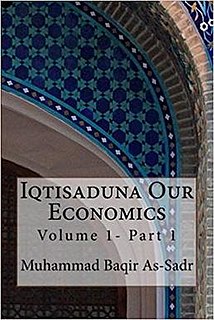 W
WOur Economy is a major work on Islamic economics by prominent Shia cleric Muhammad Baqir al-Sadr. Muhammad Baqir Al-Sadr was born on Kadhimiyeh, Baghdad in 1935. The book written between 1960 and 1961, and published in 1982, it is al-Sadr's main work on economics and one of his most significant works, and still forms much of the basis for modern Islamic banking. First translate to English done in 1982 by Iranian government and after that the book translated to German in 1984 by a young German orientalist.
 W
WIshi in Two Worlds is a biographical account of Ishi, the last known member of the Yahi Native American people. Written by American author Theodora Kroeber, it was first published in 1961. Ishi had been found alone and starving outside Oroville, California, in 1911. He was befriended by the anthropologists Alfred Louis Kroeber and Thomas Waterman, who took him to the Museum of Anthropology in San Francisco. There, he was studied by the anthropologists, before his death in 1916. Theodora Kroeber married Alfred Kroeber in 1926. Though she had never met Ishi, she decided to write a biography of him because her husband did not feel able to do so.
 W
WThe Life and Work of Sigmund Freud is a biography of Sigmund Freud, the founder of psychoanalysis, by the psychoanalyst Ernest Jones. The most famous and influential biography of Freud, the work was originally published in three volumes by Hogarth Press; a one-volume edition abridged by literary critics Lionel Trilling and Steven Marcus followed in 1961. When first published, The Life and Work of Sigmund Freud was acclaimed, and sales exceeded expectations. Although the biography has retained its status as a classic, Jones has been criticized for presenting an overly favorable image of Freud. Jones has also been criticized for being biased in his treatment of rival psychoanalysts such as Otto Rank and Sándor Ferenczi.
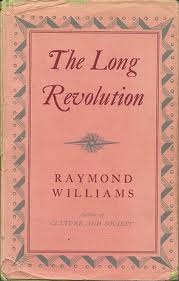 W
WThe Long Revolution, by Raymond Williams, 1961.
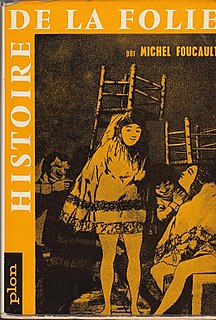 W
WMadness and Civilization: A History of Insanity in the Age of Reason is an examination by Michel Foucault of the evolution of the meaning of madness in the cultures and laws, politics, philosophy, and medicine of Europe—from the Middle Ages until the end of the 18th century—and a critique of the idea of history and of the historical method.
 W
WThe Making of the President 1960, written by journalist Theodore H. White and published by Atheneum Publishers in 1961, is a book that recounts and analyzes the 1960 election in which John F. Kennedy was elected President of the United States. The book won the 1962 Pulitzer Prize for General Non-Fiction and was the first in a series of books by White about American presidential elections.
 W
WMarx's Concept of Man is a 1961 book about Karl Marx's theory of human nature by the psychoanalyst Erich Fromm. The work sold widely thanks to the popularity of Marx's early writings, which was a product of the existentialism of the 1940s.
 W
WMarxism: An Historical and Critical Study is a book by the socialist intellectual George Lichtheim, in which the author provides a study of the development of Marxism from its origins to 1917. It has been seen as a classic work.
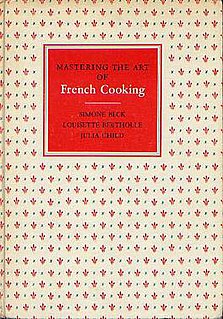 W
WMastering the Art of French Cooking is a two-volume French cookbook written by Simone Beck and Louisette Bertholle, both of France, and Julia Child of the United States. The book was written for the American market and published by Knopf in 1961 and 1970. The success of Volume 1 resulted in Julia Child being given her own television show, The French Chef, one of the first cooking programs on American television. Historian David Strauss claimed in 2011 that the publication of Mastering the Art of French Cooking "did more than any other event in the last half century to reshape the gourmet dining scene."
 W
WThe Middle Passage: The Caribbean Revisited is a 1962 book-length essay / travelogue by V. S. Naipaul. It is his first book-length work of non-fiction. It has the sub-title "The Caribbean Revisited".
 W
WMy Life in Court is a 1961 memoir by American trial lawyer Louis Nizer documenting his career in law. The work was a best seller when it was first released, lasting for 72 weeks on The New York Times Bestsellers list.
 W
WThe Myth of Mental Illness: Foundations of a Theory of Personal Conduct is a 1961 book by the psychiatrist Thomas Szasz, in which the author criticizes psychiatry and argues against the concept of mental illness. It received much publicity, and has become a classic, well known as an argument against the tendency of psychiatrists to label people who are "disabled by living" as "mentally ill".
 W
WNever Say Die is a memoir by Jack Hawkins, a lieutenant with the United States's 4th Marines in World War II. It was first published in 1961.
 W
WNobody Knows My Name: More Notes of a Native Son is a collection of essays, published by Dial Press in July 1961, by American author James Baldwin. Like Baldwin's first collection, Notes of a Native Son, it includes revised versions of several of his previously published essays, as well as new material.
 W
WThe Origins of the Second World War is a non-fiction book by the English historian A.J.P. Taylor, examining the causes of World War II. It was first published in 1961 by Hamish Hamilton.
 W
WPerfidy is a book written by Ben Hecht in 1961. The book describes the events surrounding the 1954–1955 Kastner trial in Jerusalem.
 W
WPhysicist and Christian: A Dialogue Between the Communities (1961) is a book by William G. Pollard. Much of the attention given to the book such as its review in Time magazine has been attributed to the fact that Pollard was not only a well-respected physicist but also an Anglican priest. The book deliberately avoids specific subject matter differences, focusing on religion and science both as human communities. An important theme is the idea that human knowledge—scientific or religious—can be developed only by those, like Pollard, who have "fully and freely" given themselves to a human community, whether to the physics community or Christian community or some other, e.g., the United States Marine Corps. Also an important theme is Pollard's argument and cautions against a cultural norm in which scientific knowledge would be objective and public, on the one hand, while religious knowledge would be subjective and private, on the other.
 W
WThe Principles of State and Government in Islam is a book written by Muhammad Asad. It was originally published in 1961 by University of California Press, and a revised edition was published in 1980 by Islamic Book Trust.
 W
WReligion and Nothingness is a 1961 book about nihilism by the Japanese philosopher Keiji Nishitani. The book was published in English translation in 1982, and received positive reviews, commending Nishitani for his understanding of both western and eastern philosophy. The appearance of the English translation increased interest in Nishitani's ideas among philosophers.
 W
WResistance, Rebellion, and Death is a 1960 collection of essays written by Albert Camus and selected by the author prior to his death. The essays here generally involve conflicts near the Mediterranean, with an emphasis on his home country Algeria, and on the Algerian War of Independence in particular. He also criticizes capital punishment and totalitarianism in particular.
 W
WSilence: Lectures and Writings is a book by American experimental composer John Cage (1912–1992), first published in 1961 by Wesleyan University Press. Silence is a collection of essays and lectures Cage wrote during the period from 1939 to 1961. The contents of the book is as follows:"Foreword" (1961) "Manifesto" (1952) "The Future of Music: Credo" (1937) "Experimental Music" (1957) "Experimental Music: Doctrine" (1955) "Composition as Process" (1958), essay in three parts: "Changes" "Indeterminacy" "Communication" "Composition" (1952–1957), essay in two parts: "To Describe the Process of Composition Used in Music of Changes and Imaginary Landscape No. 4" (1952) "To Describe the Process of Composition Used in Music for Piano 21–52" (1957) "Forerunners of Modern Music" (1949) "History of Experimental Music in the United States" (1959) "Erik Satie" (1958) "Edgar Varèse" (1958) "Four Statements on the Dance" (1939–1957) "Goal: New Music, New Dance" (1939) "Grace and Clarity" (1944) "In This Day..." (1956) "2 Pages, 122 Words on Music and Dance" (1957) "On Robert Rauschenberg, Artist, and His Work" (1961) "Lecture on Nothing" (1959)
 W
WStorm over Laos, a contemporary history was written in 1961 by Prince Sisouk na Champassak. It is written in English. It is a book on Laos from 1945 to 1961. It goes into much detail about the semi non-violent Secret War in Laos. It also talks about the rise of the Pathet Lao, from its beginnings as a dusty guerrilla unit.
 W
WThe Structure of Science: Problems in the Logic of Scientific Explanation is a 1961 book about the philosophy of science by the philosopher Ernest Nagel, in which the author discusses the nature of scientific inquiry with reference to both natural science and social science. Nagel explores the role of reduction in scientific theories and the relationship of wholes to their parts, and also evaluates the views of philosophers such as Isaiah Berlin.
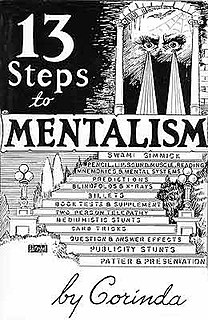 W
WThirteen Steps to Mentalism is a book on mentalism by Tony Corinda. It was originally published as thirteen smaller booklets as a course in mentalism and was later republished as a book in 1961. The book is now considered by most magicians to be a classical text on mentalism.
 W
WThought Reform and the Psychology of Totalism: A Study of "Brainwashing" in China is a non-fiction book by psychiatrist Robert Jay Lifton on the psychology of mind control.
 W
WTotality and Infinity: An Essay on Exteriority is a 1961 book about ethics by the philosopher Emmanuel Levinas. Highly influenced by phenomenology, it is considered one of Levinas's most important works.
 W
WTracks of Destiny is a 1961 travel book by Ion Idriess.
 W
WVan Dale's Great Dictionary of the Dutch Language, called Dikke Van Dale [ˈdɪkə vɑn ˈdaːlə] for short, is the leading dictionary of the Dutch language. The latest edition was published in 2015.
 W
WVayoel Moshe is a Hebrew book written by Rabbi Joel Teitelbaum, founder of the Satmar Hasidic movement, in 1961. In it, Teitelbaum argues that Zionism is incompatible with Judaism.
 W
WWebster's Third New International Dictionary of the English Language, Unabridged was published in September 1961. It was edited by Philip Babcock Gove and a team of lexicographers who spent 757 editor-years and $3.5 million. The most recent printing has 2,816 pages, and as of 2005, it contained more than 476,000 vocabulary entries, 500,000 definitions, 140,000 etymologies, 200,000 verbal illustrations, 350,000 example sentences, 3,000 pictorial illustrations and an 18,000-word Addenda section.
 W
WWhat Is History? is a 1961 non-fiction book by historian Edward Hallett Carr on historiography. It discusses history, facts, the bias of historians, science, morality, individuals and society, and moral judgements in history.
 W
WThe Whispering Land is an autobiographical account of the 8 months Gerald Durrell spent travelling in Argentina during the late 1950s, collecting animals for his then recently founded Jersey Zoo. The book is divided into two parts. In the first, Durrell travels south from Buenos Aires to the arid scrublands of Patagonia; in the second he is based at a small town in the north western province of Jujuy.
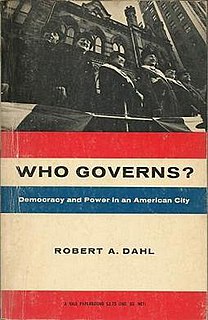 W
WWho Governs?: Democracy and Power in an American City is a book in American political science by Robert Dahl. It was published in 1961 by Yale University Press. Dahl's work is a case study of political power and representation in New Haven, Connecticut. It is widely considered one of the great works of empirical political science of the twentieth century.
 W
WWhy I Am a Separatist is a political essay by Marcel Chaput, a militant for the independence of Quebec from Canada. It was published in French in 1961 and in English translation in 1962.
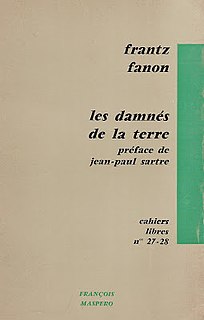 W
WThe Wretched of the Earth is a 1961 book by the psychiatrist Frantz Fanon, in which the author provides a psychiatric and psychologic analysis of the dehumanizing effects of colonization upon the individual and the nation, and discusses the broader social, cultural, and political implications inherent to establishing a social movement for the decolonization of a person and of a people. The French-language title derives from the opening lyrics of "The Internationale".